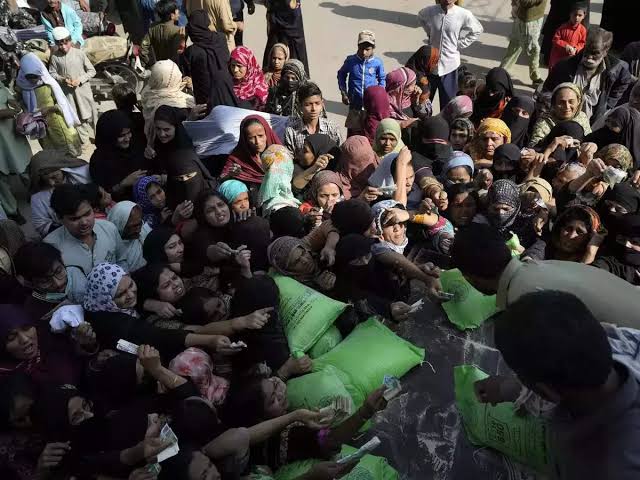Facing hunger in Pakistan

Pakistan’s hunger problem has been worsening for the last several years. There are multiple reasons for this deterioration, including but not limited to acute food shortages and increasing poverty both in the rural and urban areas.
Last year, Pakistan was ranked 92nd by the Global Hunger Index out of 116 countries and placed alongside nations with a “level of hunger that is serious”. Almost 13pc of the country’s population is reported by the index to be undernourished. At least 7pc of children under five years are described as wasted and 37.6pc as stunted, with 6.7pc dying before reaching their fifth birthday.
The World Food Programme had estimated that 43pc of Pakistanis are food-insecure, and 18pc of those face acute food insecurity.
In this backdrop, a UN-backed report says that an additional 8.6m people in the rural districts of the three provinces faced a serious food crisis during the last quarter of 2022 in the wake of the worst monsoon floods that hit the country in more than a decade, affecting 33m people from mostly poor households.
A large number of such people — 5.2m — live in nine Sindh districts, 1.8m in seven KP districts and 1.6m in 12 districts of Balochistan. This should not be surprising because several reports by international agencies and non-profits working in the flood-affected areas had been warning of the developing food crisis even before the waters started receding. Especially vulnerable in this crisis are women and children.
It can be said that the constantly growing food insecurity exacerbated by the floods is perhaps the biggest challenge confronting Pakistanis. The gravity of the situation can be assessed from recent events in which several people died in stampedes in different parts of the country while collecting free wheat flour during Ramazan. The war against hunger cannot be won just by providing free wheat flour and other staples.
That is just a political gimmick. If the country is to achieve food security for all, the government would have to revamp agriculture, control surging prices to curb food inflation that is spiking to record highs, tackle poverty through the creation of jobs by encouraging private investment — particularly in agro-based industries — financially empower women, etc. This cannot be achieved overnight. But food insecurity and hunger will continue to worsen unless the government starts to deal with the problem.




